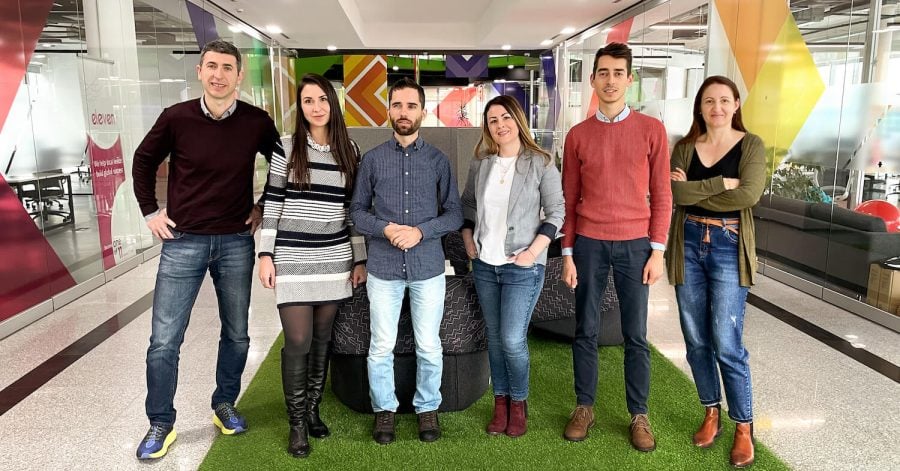After two seasons, 31 participating fintechs, 22 pilot projects, and €19.2M raised by startups, Visa and its local partners in Bulgaria, Greece, and Turkey are now welcoming fintechs from all across SEE to enter the third season of the Visa Innovation Program. The three programs that are locally operated by the early-stage VC Eleven Ventures in Bulgaria, the civic tech and fintech open innovation hub Crowdpolicy in Greece, and the startup and corporate innovation accelerator Hackquarters in Turkey, will combine efforts to accelerate the innovation power of the regional community. Unlike the previous two seasons when the local programs worked separately, the third season of Visa Innovation 3 will unite their resources and Eleven Ventures will coordinate the regional collaboration with the aim to allow participating startups to have access to more opportunities for partnerships and a wider market.
With even more initiatives, expanded community, more opportunities for proof of concept (PoC), and a bigger reach, the Visa Innovation Program 3 is opening the application to all pre-seed, seed, and Series A stage startups to provide them with a fast-track program where they can test and validate their fintech solutions with the support of Visa and its international partners’ network and significantly speed up their go-to-market cycle. Aspiring fintech startups with already established teams, launched solutions, and products that focus on empowering SMEs, unlocking new payment flows, designing next-generation payment experiences, or building smarter cities, can apply to join the third cohort of the Program until 15th April.
More community power through co-creation
During this season of Visa Innovation Program, the three neighboring programs will operate as one united regional program so that participating startups can meet with all regional financial institutions, can gain more value from the augmented peer-to-peer and mentor network, and the enhanced PoC and partnership opportunities. From the perspective of Eleven Ventures, the changes in the structure of the Program will result in closer collaboration with the teams in Greece and Turkey, in more joint events including the Kick-Off and Demo Day as well as in the adoption of a unified approach towards the fintech startups.
Provided with the opportunity to develop long-lasting business relationships with some of the partner banks of the program, which include ING, Postbank, Raiffeisenbank, and Eurobank, the participating startups will get their proof-of-concept and will receive pilot support as well as access to VCs and business angels. According to Sevdalina Vassileva who is Visa’s General Manager for Greece, Cyprus, and Bulgaria, Visa Innovation Program brings value to both the participating fintech startups and to Visa as it places many fresh ideas with great market potential on the corporate innovation table. Likewise, Daniel Tomov who is a Managing Partner at Eleven Ventures notes that the more mature the Visa Innovation Program becomes, the better opportunities it offers to the participating fintechs and the more collaboration it allows to unfold between key industry players so that they can engage in the co-creation of better financial products and services with higher added value to customers.
New opportunity areas to address post-Covid challenges
In the previous two years, the most represented participating startups were from the payments, personal finance, analytics, and regtech verticals and examples include the digital insurance platform Boleron, the end-to-end receivables management platform eCollect, and the open banking and PSD2 licensed platform Iris Solutions. Recognizing that the pandemic brought emerging areas for innovation opportunities, the third season of the program will be looking for startups that can boost the post-Covid-19 digital recovery of SMEs and enable them to better address their customers’ changing needs and expectations. Besides fintechs that specialize in moving cash payments on card rails such as procurement platforms or distributed ledgers, as well as startups that develop new types of payment experiences for the post-plastic world, the focus will also be on fintechs that develop smart city solutions for the improved access to public services.
More specifically, the Program will be scouting for solutions that help SMEs accelerate their e-commerce businesses, improve user experience through POS products and services, and optimize their business models with innovative financial instruments such as buy-now-pay-later models. Solutions that unlock new payment flows such as products that mitigate cash-only B2B, C2B, and B2C and gig-economy payments on card rails, and blockchain and crypto solutions with a potential to support Visa’s vision to become a network of networks will also be welcomed in the program. In order to support more fintechs that design next-generation payment solutions, the Visa Innovation Program will also focus on working with startups that develop services and products for financial inclusion and enhanced digital end-user experience such as automated credit scoring, digital card insurances, and fraud detection and management. The last challenge that will be addressed is building smarter cities through technologies that can simplify access to public services and improve the safety of communities as well as use open data to interconnected services to support urban mobility and public administration.







